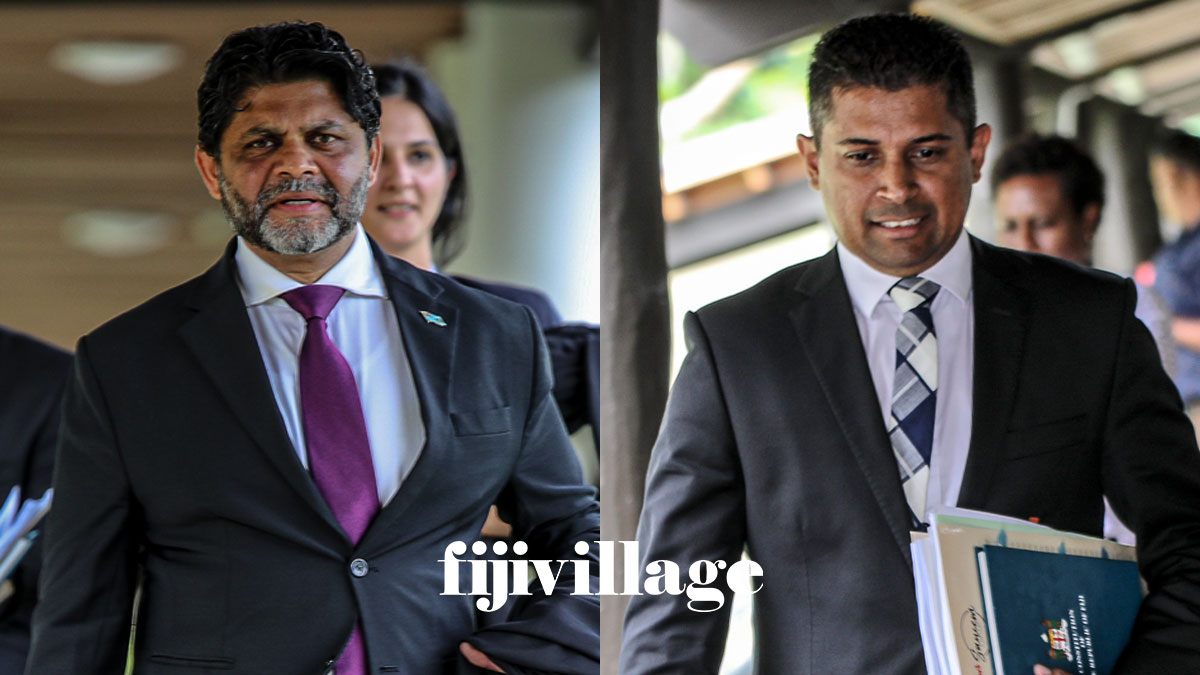
The Supreme Court has today said that as they understand it, the Fijian Constitution of 2013 was not the result of the type of public process that preceded the adoption of the United States Constitution.
While refusing the applications of former Attorney General, Aiyaz Sayed-Khaiyum and former Supervisor of Elections, Mohammed Saneem to be interveners in the cabinet case, the judges say the 2013 Constitution was the work of a relatively small group of officials, of which Sayed-Khaiyum was one.
They say if they were to grant him leave to assist the Court with matters of background, they would have also to seek input from other members of the group.
They say this is particularly so because Sayed-Khaiyum, no matter how hard he tries, cannot be dispassionate given his personal interest in the outcome of the reference.
They say allowing evidence of this type would be inconsistent with the nature of a reference.
Aiyaz Sayed-Khaiyum and Mohammed Saneem applied to be interveners in the case of the cabinet seeking an opinion from the court to determine the interpretation on whether a person found guilty by the Independent Legal Services Commission is disqualified or eligible to take up positions such as a judge, the Attorney General and the Director of Public Prosecutions.
In its ruling, the Supreme Court says they are concerned with a specific aspect of the Constitution, namely the interpretation and application of section 105(2)(b) and they think it is unlikely that there will be much, if anything, in the background that could assist with the interpretation of that particular requirement.
Judges, Justice Brian Keith and Justice Sir Terence Arnold in their ruling say they acknowledge that the Constitution requires that those appointed to a number of offices must meet the qualifications for appointment as a judge and that there may well be some background as to why that requirement applies in relation to those offices.
They say however, that does not bear on the fundamental issue of interpretation raised by the reference.
In Saneem's application, they say they do not believe that simply having an interest in the outcome is the correct test for someone seeking to intervene in existing proceedings.
They also say the second basis on which Saneem claims to have a standing is that as a former Chief Registrar, he is able to assist the Court with the practical aspects of the application of the provisions of the Legal Practitioners Act however, the judges say what they understand from Saneem's affidavit, is that he was never confirmed in the substantive post of Chief Registrar, and was only in post for a very short while between late 2012 and sometime in 2013.
They say they regard it as questionable whether the narrow issue which the reference raises requires the Court to be informed of the practical aspects of the application of the provisions of the Legal Practitioners Act.
They say however, should that become necessary, that information can be given to the Court by the counsel for the Cabinet and the legal teams of the persons and bodies who have been served.
They add in any event, it would hardly be appropriate for that information to be provided only by a former Acting Chief Registrar who has his own reasons for wanting the Court to rule that Acting Director of Public Prosecutions, John Rabuku was not eligible for appointment.
Saneem had said that Acting DPP, John Rabuku has sanctioned a charge against him and he intends to challenge Rabuku’s position in that he has been found guilty by the Independent Legal Services Commission.
He said there is a risk that this could be seen as an intervention by cabinet in judicial proceedings.
Saneem said the cabinet does not deal with the appointment for judges or the DPP.
He added in the event the court finds the appointment illegal, the validity of his action will also be illegal and so an affected person has the right to appear in the proceedings.
Sayed-Khaiyum's lawyer, Gul Fatima had earlier said that Sayed-Khaiyum has been charged where the charges were sanctioned by the Acting DPP but it should not be seen in the same light as Saneem’s application.
She said Sayed-Khaiyum is the former Attorney General and as someone involved in the drafting of the Constitution, can provide the rationale behind the provision.
She said there is no muddying the waters here.
The Supreme Court will give their opinion on June 28th on the matter where Cabinet has made a referral to the Court concerning the interpretation of section 105(2)(b) of the Constitution, in particular, whether an Independent Legal Services Commission finding in a disciplinary proceeding instituted against a legal practitioner, is consistent with the intended finding of guilt in the constitutional provisions.
Justice Sir Terence Arnold, Justice Brian Keith and Justice William Young are presiding over the matter, and the hearing will be held on 19th and 20th June.
According to section 105(2)(b) of the Constitution, a person is not qualified for appointment as a Judge unless he or she has had not less than 15 years post-admission practice as a legal practitioner in Fiji or in another country prescribed by law, and has not been found guilty of any disciplinary proceeding involving legal practitioners whether in Fiji or abroad, including any proceeding by the Independent Legal Services Commission or any proceeding under the law governing legal practitioners, barristers and solicitors prior to the establishment of the Independent Legal Services Commission.
The lawyer from Haniff Tuitoga Lawyers, Feizal Haniff is representing the applicant on behalf of the Solicitor General’s Office, Anil Singh is representing Justice Alipate Qetaki, Parvesh Sharma is appearing for the Human Rights Commission and Richard Naidu is appearing for the Fiji Law Society.
Stay tuned for the latest news on our radio stations

